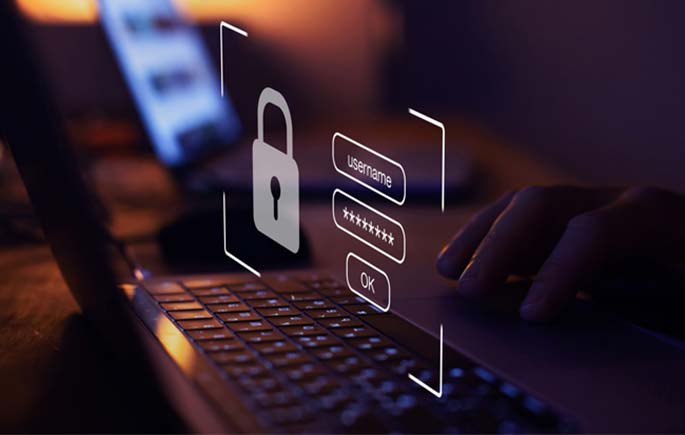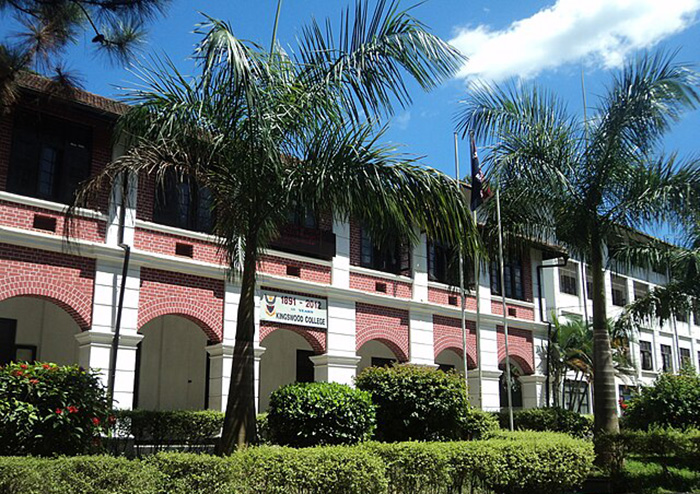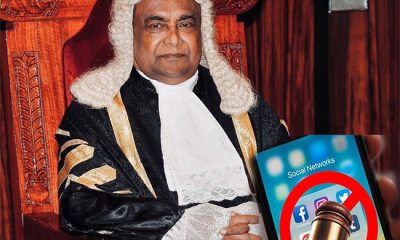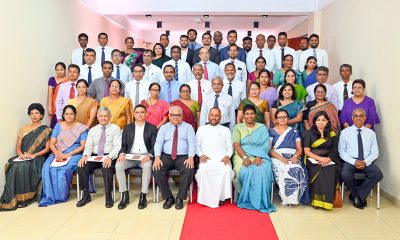Features
Technical Overview of Online Safety Act

Eng. Rohana Palliyaguru
Former Chief Operating Officer,
Sri Lanka Computer Emergency Readiness Team
In 2018, “EUROPOL” headquartered in Hague, Netherlands, a key organization established to prevent and combat serious internationally organized crimes, cybercrime and terrorism, had clearly defined the difference between cyber-dependent crimes and cyber-enabled crimes . As defined by them, any crime that can only be committed using computers, computer networks or other forms of information communication technology was named as cyber-dependent crimes and traditional crimes facilitated by the Internet and digital technology were categorized as cyber-enabled crimes. So, there are two categories of cybercrimes and these definitions are internally accepted.
Illicit intrusion and hacking into computer networks, disruption of computer functionality with the spread of viruses or other malware and Distributed Denial of Service (DDoS) attacks which can paralyze service delivery by computers are some examples for cyber-dependent crimes.
Some Cyber-enabled crimes are child sexual exploitation, fraud/scams,blackmail, extortion etc.
In the Sri Lankan context, Computer Crime Act No. 24 of 2007 has already provided necessary legislative provisions for tackling most of the cyber-dependent crimes.
Issues related to content such as defamation, harassment, misinformation, impersonation occur not only through online means but also through the use of other traditional means (electronic or print media). Hence, such things fall under cyber-enabled crimes. Sri Lanka has adequate laws to cobat such cyber-enabled traditional crimes. If not, the relevant legislation should be amended accordingly. It is not appropriate to make separate laws for such crimes considering only internet media, and doing so becomes very suspicious.
Hence, the objective of the Online Safety Act itself is problematic.
Also, naming the Act as Online Safety Act is also meaningless because its scope is very narrow. Otherwise it should be drafted in such a way to cover both types of cybercrimes mentioned above. But it is not so. Only provisions related to cyber-enabled crimes are mentioned in this act. These are often content related issues. Since the Act has given priority to regulating social media, I think it is appropriate to change its name to Social Media Regulation Act.
While drafting this Act, it appears that no inputs from information technology experts had been obtained as many of the provisions included are not practical. For example, provisions sought to be enforced through global Internet intermediaries are not enforceable because the Sri Lankan market is too small for them to bother about and we do not have the bargaining power necessary to ensure enforcement. This should have been pointed out by IT expert but that does not seem to have happened. If the global service providers decide to exit the Sri Lankan market due to those provisions, it will severely affect the country’s economy as well as social harmony.
This Online Security Act will have a huge impact on the freedom of expression of Sri Lankan citizens. The power to determine false/true statements and declare them as prohibited has been given to five people in a population of 21 million. These five who cannot be considered politically independent will be nominated and appointed by the President with the approval of the Constitutional Council. This will have a major impact on the independence and impartiality of the commission as the President is empowered to nominate politically biased loyalists at will. The power to remove them at any time has also been given to the President. Reasons for doing so has not bee specified in the Act itself. Affected members are only given an opportunity to state their case at a hearing and there is no appeal process.
As disqualification for appointment as a member of the commission, the Act mentions financial or other interest of such a member that may adversely impact the implementation of the commission’s functions. But there is no mention of required political independence of such members. It is essential that such a member cannot have a conflict of interest with Internet service providers, social network service providers, Internet intermediaries, but that is not mentioned here.
Although the Commission has been entrusted with wide powers and duties, there are many practical obstacles to carrying them out. It appears that the provisions have been included without adequate technical study or consultation. These practical problems will arise with implementation and the results will experience in the future.
The extent to which Internet Service Providers (ISPs) and Internet Intermediaries will comply with orders of the commission directly depends on the bargaining power we have as a country. We do not have the bargaining power of India, Japan or China. Our population of about 21 million is not a huge market that wields such influence. Also, global Internet intermediaries that provide various services have already introduced community standards to regulate the contents on their platforms which are currently in operation. Through that, they have also implemented a certain level of regulation in their platforms. It is unlikely that they will agree to carry out directives of a commission in a small country going beyond global community standards they have introduced.
ISPs only provide access to the Internet and are not concerned or responsible for its content or what users browse through the connection. It is therefore ludicrous to issue directives to the ISPs to provide opportunities to affected parties to respond to content deemed prohibited by a commission here. The ISPs have no control over such matters.
Persons making prohibited statements must be specifically identified before being notified to stop making such statements. Who is going to do that ? Also, in order to specifically identify a particular person it is essential to obtain privacy related data from the relevant social media service provider or Internet intermediary. Since every global service provider is obliged to protect the privacy of their users (via privacy policies), it is doubtful that they would override their privacy policies and provide that information to the commission.
The commission can issue notices to the Internet intermediaries to remove prohibited content from their online platform or block the content to users in Sri Lanka.But as I mentioned above, they will remove or block them only if the content is contrary to their policies. In such a case, the commission can only block the whole platform (eg: facebook) through Internet service providers in Sri Lanka. This is unfair to all users in Sri Lanka and as a result there is a danger that internet intermediaries may also withdraw from providing services to our country.
When internet intermediaries have the ability to automatically check whether some content violates their community standards through complex processes using modern technology such as artificial intelligence (AI algorithms), how far will they accept the recommendations made by the commission to remove prohibited statements?This should be thought of practically.
It has been proposed to maintain an online portal containing information to give the public an understanding of the falsity of a certain statement. This is funny because the public can get more information from lot of other independent sources and come to their own conclusions than referring to the information provided via this portal.
A team with expertise in information technology is required to carry out investigations that may be necessary for the execution of the Commission’s powers and duties. Who is going to do this? Does the Commission have a permanent internal investigation team?
It is not practical to register Global Internet Intermediaries in such a manner as may be specified by the rules made by this Act. We are a bankrupt country without enough market or bargaining power to enforce such provisions. Therefore, this provision should be reconsidered.
In order to specifically identify a person who has made a false statement, it is essential to obtain personally identifiable information (PII) from Internet intermediaries. How practical is this? As I mentioned above, will they provide the information requested by the Commission? Even if that is granted, how can the legal action be taken if the person is outside Sri Lanka? Will ISPs in overseas provide relevant data to the Commission for investigations?
Also, a fact that is true at one moment may be false at another. Even if a provocation or riot occurred on the basis of a truthful statement, it is also possible that the commission later defines it as a false statement because of the riots.
Disruption of a religious assembly by a true statement may later become a false statement because of the fact that the incident did not occur. For example, the Easter bomb attack may not happen because of a statement spread predicting it can happen on that day and disturbs religious gatherings. But since the bomb blast did not happen, later the above statement can be interpreted as a false statement justifying that it was made purposely to disturb the said religious meetings.
Outrage of religious feelings is a very sensitive matter and there should be a balance of freedom of expression and its limitations. One’s beliefs regarding a religion may be contrary to another’s and how should the right to express it be? For example, is it an insult to a religion and a false statement to declare that there is no one called God?
Cheating doesn’t just happen online. Other traditional methods are also widely used for that. Therefore, it is more appropriate to introduce a law that is common to all or to update an existing law rather than make legal provisions limited to online media.
Impersonating doesn’t just happen online either. This fraud can also be done by using fake documents. Therefore, the existing laws should have been updated to cover online methods as well.
The provisions of this Act regarding child abuse should have been made by updating other existing Acts such as the Child Protection Act, and not by highlighting them as an offenses due to the medium of the Internet. Online techniques are just one plaform through which child abuse occurs.
Although it is possible to obtain an order requiring disclosure of information relating tho those making statements using a fake online account or bot, as I have mentioned several times above, it is doubtful to what extent Internet intermediary service providers will cooperat due to their existing privacy policies. If there was an international law in this regard, this may have been easy.But we know from past experience that obtaining privacy related information through cyber security conventions is not practical.
This Act exempts ISPs from liability in case something is uploaded or interfered with by a third party. It is not necessary to say this because it is not their responsibility. As stated earlier, if those who drafted the Bill had recognized the role of Internet service providers, such a provision would not have been provided.
Global Internet Intermediary Service Providers will not take action on content unless it violates existing community standards. It is also unlikely that they will appear in our courts to resolve content related issues.
I feel that it is required to re-think whether those global Internet intermediaries agree to the various conditions stipulated in Section 29 of the Act. Internet intermediary service providers are well aware that fake online accounts and organized counterfeiting occur through their platforms. But, they have not taken drastic measures to ban them completely, often to protect freedom of expression and individual identity. They also do not hesitate to cancel such accounts if they violate their community standards. It is unlikely that they will implement the Commission’s directives to ban fake accounts.
Finally, it must be mentioned that this is not an Act introduced with the broad objective of creating security online, but one aimed at controlling content on the Internet. In the future, we can experience the impact of this on the freedom of expression of the people as well as the economy and social activism.
Features
THE NEXT US CIVIL WAR

Film Review
By Jayantha Somasundaram
CIVIL WAR, written and directed by Alex Garland, staring Kirsten Dunst as Lee Smith, Wagner Moura as Joel, Cailee Spaeny as Jessie Cullen, Stephen McKinley Henderson as Sammy.
The film plot is fairly simple. A civil war has broken out in the United States of America, when the incumbent president continues into a third term in office. Consequently, the country disintegrates into four camps along state lines, one group remaining loyal to the authoritarian president. But the President, played by Nick Offerman, and Washington DC, are beleaguered and about to be overrun by the Western Forces made up of Texas and California. The film follows four American journalists who are bent on driving to Washington to interview the President. They are attacked along the way by different armed factions and arrive in the capital as it is being overrun.
American reviewers have not been kind to the movie. Stephanie Zacharek in Time, writes “Do we really need a movie to invent, and rub our noses in, the possibility of a bleaker future?” It is hard, however, to ignore the feeling that Americans themselves, particularly those who identify with the South which lost the Civil War, a hundred and sixty years ago, appear to be very preoccupied with the memory of the Civil War.
In fact while the actual Civil War was in progress in the 19th Century, many in the US were desperate for the endorsement of those across the Atlantic. In her book A World on Fire: An Epic History of Two Nations Divided, historian Amanda Foreman writes how at that time the English MP John Roebuck publicly declared, in Manchester, that “The North (the Unionists) will never be our friends. Of the South (Confederates) you can make friends, they are Englishmen, not the scum and refuse of Europe!”
Jill Filipovic, writing in New Statesman, of 03 April, says that raised in Washington State, which didn’t even exist as such during the Civil War, she learned and understood the Civil War as when “southern states wanted to continue the practice of chattel slavery, which was often discussed in terms of “the economy” (the southern economy being powered by forced, unpaid, lifelong labour) and “states’ rights” (to refuse to bow to federal authority, specifically any laws that sought to regulate or end slavery).”
She points out that the Southern narrative and some textbooks that their school children learn from “portray enslaved people as well treated and happy with their lives…that the war was nobly fought over “freedom” and “states’ rights”, upon which the north was infringing.” Or, as Dinesh D’Souza explains, “the American slave was treated like property, which is to say, pretty well!”
Author and critic Jill Filipovic sees a dystopian message in the film. That the passions and prejudices of the original Civil War remain with us even if they are latent. She quotes Matthew C MacWilliams ,who wrote in Politico, in 2020, that “The single factor that predicted whether a Republican primary voter supported Trump over his rivals was an inclination to authoritarianism.” And the writer-director of the film, Alex Garland, has pointed out that US politics in recent years make it abundantly clear “exactly what the fault lines and pressures are.”
In its review of Civil War, the London Economist is explicit. “Perhaps Alex Garland sees no need to point out the country’s bitter polarisation, the loss of faith in the organs of government or the threat posed by a former president who thinks democratic norms are for other people. In the wake of the attacks of January 6th 2021—when a mob of Donald Trump’s supporters stormed the Capitol in an attempt to block the transfer of power—the threat of insurrection has felt uncomfortably real.”
The Economist was as explicit as are some politicians. Georgia Congresswoman Taylor Greene is quite frank: “We need to separate by red states and blue states.” Or as the anonymous comment that appeared under the YouTube trailer of the motion picture says “This isn’t just a film. It’s a premonition.”
The next civil war is, in fact, very much the subject of both fiction and political commentary. There have been novels like Omar El Akkad’s American War in 2017 and Douglas Kennedy’s Flyover in 2023 and a TV series DMZ (2022). Also in 2022 Political Scientist Barbara Walter, a Professor at University of California, San Diego, and a world authority on civil wars, published How Civil Wars Start, and Stephen Marche, the Canadian essayist and commentator, wrote The Next Civil War: Dispatches from the American Future. The latter cautions: “The United States is a textbook example of a country headed towards civil war.”
Interestingly, the foregoing politics is ignored by the film. There is no such context provided or assumed. It is left to each viewer to formulate his or her own sequence of how the US would have gone from where it is now to political disintegration and military civil war.
Instead, the movie focuses totally on the human drama played out by the four journalists. The cautious Joel, the self confident Lee Smith, the tired and disillusioned Sammy and the young and eager Jessie Cullen. It follows how they deal with a crisis and threat that they have little control over, how they are singularly driven by their quest for a scoop, how they clash and bicker at the outset but as the pace gets quicker and riskier they mellow, bond and have compassion for each other.
Despite the political cloud hanging over this narrative it is still a very human story that we can all relate to.
Features
Teflon Tiran and Visa Outsourcing

by Rajan Philips
Everything seemed quiet on the government front, bar the colours and noises of May Day politics. Then all hell broke loose one day, at the airport of all places. The old ETA (Electronic Travel Authorization) system, which everyone requiring a visa on arrival had got used to, was gone, and a new VFS system that no one has heard of was in place. The change apparently had been implemented following cabinet approval of a proposal by Public Security Minister Tiran Alles based on an unsolicited offer by a consortium of three foreign companies.
The unsolicited proposal that would seem to have landed in the Minister’s inbox without prior notice, in fact emanated from a consortium of three visa business enterprises: GBS Technology Services, a global visa outsourcing company, with head office in Singapore; IVS Global-FZCO, which is a government-authorized Indian private company that collects Personal, Educational and Commercial documents for attestation; and VFS VF Worldwide Holdings Ltd., is also an outsourcing and technology service specialist, head-quartered in Zurich and Dubai. Their declared enterprise is to support governments and their far flung diplomatic missions. Outsourcing is their specialty.
It was a different specialty at the Bandaranaike International Airport. The airport stuff hit the social media and older media, and questions were flung at the government. One editorial asked: Whose brilliant idea was it? That was a rhetorical question, but the Minister in charge of Tourism answered the media in general: Ask the Immigration Minister. The latter happened to be in Singapore when the visa fiasco broke out – where else would you find Sri Lankan decision makers when their files are caught up in crises at home? Remember Maithripala Sirisena. Now, he is barred from entering any political office in Colombo. Gota too went to Singapore in search of other pastures. But he returned, the home turf being greener than any other, especially with a green man at the top.
Tiran Talks Tough
But unlike the two failed Presidents, Minister Alles is a power unto himself. He stood his ground in Singapore, so to speak, and promised answers upon his return. Which he did, first at a special media briefing and later in parliament. But there were no real answers, but only take-it-or-leave-it assertions. “Tiran talks tough,” one news story headlined Minister Alles’s special encounter with the media. Minister Alles justified the visa processing change based on “feedback from tourists and the need for an improved visa issuance system.” And he validated the decision-making process inasmuch as it included “a thorough review conducted by a Cabinet-appointed committee, which sought recommendations from the Attorney General and obtained unanimous approval from the House without debate.”
However, in parliament, under pressure from Opposition MPs, the Minister conceded that “the proposal regarding VFS charges was not presented to Parliament,” while arguing that “It was not necessary to present it to the Parliament,” because it had been approved in cabinet. He made another admission of error, a more grievous one for the visa seekers. The new system did not include the most popular 30-day visa. That was a mistake, the Minister admitted. Slipshod bureaucracy serving a Minister on a high speed power trip. There is no other explanation.
That the new visa system was given cabinet approval is irrelevant to the question, whose brilliant idea was it? After 46 years of steady erosion of the administrative and financial regulations (ARs & FRs) that guided public procurement until 1978, getting cabinet approval for public spending has become a bad joke. And what does the Attorney General have to do with this? Proffer recommendations on technology for choosing between alternative online visa processing systems? There were no competing alternative systems anyway to evaluate. Not even two. Only the unsolicited proposal. Did the Attorney General opine that it would be legal to accept the only offer? But was it the best or the most suitable to choose? We will never know.
In fairness, Minister Alles has described to the media the process that led to obtaining cabinet approval. On September 8, 2023, the Minister submitted a Cabinet paper on the unsolicited proposal from VFS, and on his recommendation the Cabinet appointed a Committee to review the matter. The Committee included representatives from the Treasury and other officials who were in discussions with VFS officials. The Committee completed its report in December, and on December 4, the Minister presented another proposal to the Cabinet, incorporating the committee’s report. Cabinet approval was granted on December 11 and the MoU with VFS was signed on December 21, 2023.
The Minister’s two proposals and the Committee Report that were presented to the Cabinet in September and in December have not been released to the media, nor have they been presented in parliament even after all the airport commotion. They should be made public along with VFS’s unsolicited proposal. Parliament has a right to ask for them for review and debate, and the Speaker has the obligation to get them tabled in parliament by the Minister.
Parliament and the public also need to know who were on the Cabinet-appointed Committee, who provided input on IT matters, and who first undertook the review of the VFS offer. In a normal and well-run procurement system these are routine matters, and there is no need for such public prying. But when the process is opaque and weighted, maximum probity is needed to clean up the mess.
There is another matter that needs to be placed in the public domain, and that is about the understanding the Minister and his co-decision-makers had on the operation of the old ETA system and its alleged shortcomings. We do not know if either of the two proposals by the Minister or the Committee Report that was sandwiched between them dealt with the operation of the ETA systems and its merits as well as shortcomings. All that we know so far are the Minister’s off-the-cuff remarks about the ETA, and the long but insubstantial supporting statement issued by the Controller General of the Immigration and Emigration Department, Mr. I.S.H.J. Ilukpitiya.
Minister Alles has contended that the change from ETA to VFS processing was “prompted by complaints from tourists” about the ETA, and the need for “addressing long-standing issues” with it. According to the Minister, such complaints were even “directed to President Ranil Wickremesinghe during his engagements with the tourists themselves.” But this is not the assessment of anyone in the in the tourism business, nor has this been the experience of travellers in general including this writer.
The Minister of Tourism, Harin Fernando, has distanced himself from the outsourcing decision while accepting collective responsibility for it as a cabinet member. The Sri Lanka Tourism Development Authority has expressed relief at the revocation of the new system as its officials were concerned about it being an impediment to the industry registering two historical highs in 2024: 2.3 million tourists and USD 5 billion revenue. Quite a number of people owning private tourism small and medium have also spoken out in favour of the old system.
The ETA Saga
By all accounts, the ETA system was developed by state-owned SLT-Mobitel, and Mobitel has been the IT service provider to the ETA from the time it was launched in 2012 until it was outsourced to VFS. The system began receiving text inputs only and over time it was upgraded to allow uploading of supporting e-documents by visa applicants. That is my understanding and even my experience of using ETA.
However, what both the Minister and the Controller General (CG) have identified as ETA’s main technical problem is its alleged “inability to obtain applicant’s photographs, photocopies of passports, other certificates and documents to the system online (these documents are essential for security verification).” Even if this were so, such a problem could have been fixed using expertise available in Sri Lanka. It did not require outsourcing the whole operation, like wielding an axe to crack an egg.
The Controller General has listed other drawbacks in his long statement but gives no indication whether these matters were ever taken up with Mobitel and what attempts were made to address them. According to media reports, however, “following a cabinet decision in July 2021, Mobitel was given a contract to revamp and upgrade the ETA system.” It is further reported that Mobitel did invest time and resources to upgrade the system and was waiting to roll out the new system after COVID-19. Finally, the reports say that all of a sudden Mobitel was instructed to stop work and the new VFS consortium was hired in December and began rolling out its version on April 17.
Mobitel could still help the public understanding of the matter by providing its version of the sequence of events. Hopefully, it would do so, and sooner than later. Independent of what Mobitel may or may not do, we could still pose some questions to the Minister, the Controller General, and collectively to the Cabinet of Ministers. Given the long involvement of Mobitel, as a state-owned enterprise, in providing technical support to ETA, did the Minister or his staff discuss with Mobitel VFS’s unsolicited offer and invite Mobitel to submit an alternative proposal?
Alternatively, as a state-owned enterprise with its past ETA experience, Mobitel could and should have been asked to provide an assessment of the VFS offer. At least, on the technical aspects of the offer. On the other hand, if the VFS offer was so manifestly superior, the Minister and the government should have negotiated with VFS to agree to an arrangement, or contract, which could have included a local technology partner – most suitably Mobitel. Unlike in a tender situation, in dealing with an unsolicited proposal the government has all the flexibility and the power to ask for and get whatever it wants – but only in the public interest, not for private graft. I don’t think any of this was done.
Nor was the simple practice of vetting the unsolicited proposal (USP) was done. That would have meant the government, or the Ministry, reviewing the proposal and preparing its own Terms of Reference that would include a brief assessment of the USP and the government’s specific requirements that VFS should commit to deliver if the project or contract were to ahead. Again, none of this was done. Otherwise, the Minister would have said so and more. The rigorous level at which the USP was reviewed and accepted, likely without any change, can be gleaned from the statement of the Controller General that includes quite a laundry list of the merits of the USP. One of them really stands out. And that is about tourism promotion.
Indeed, the obvious inability of Mobitel to promote Sri Lankan tourism abroad has been cited as one of its shortcomings and a reason for its sacking. On the other hand, VFS Global was touted for its “ability to promote the tourism industry of Sri Lanka in such countries (ability to get increased the number of tourist visits) because it has “an experienced base in obtaining services in 151 countries.” Why should a visa processing agency be tasked with promoting tourism? Did the Minister or the Controller ask for references from any of the 151 countries to confirm the tourism promoting credentials of VFS Global? And since when did promoting tourism become a mandate for the Controller General of Immigration?
What is the deal?
Still, we have no real answer to the question – whose brilliant idea was it? In fact, there will never be an answer if we are looking for a source of brilliance within the country. The idea, brilliant or not, came from abroad. Unsolicited and promising no cost to Sri Lankan, but only to tourists and expats looking for a fast visa clearance at the immigration desk before being ushered to the Duty Free stores.
The outsourcing of visa and other population services hitherto handled by government officials, began in the twilight years of the Reagan-Thatcher era when outsourcing and downsizing were political credos. Western governments tentatively began to outsource some of their diplomatic functions, especially visa processing of permanent-resident immigrants and not so much temporary tourists. The outsourcing practice took flight and in the name of cost savings different countries contracted with the same company for visa services.
Consortiums were formed to facilitate platforms that would serve multiple countries as clients. Once operational platforms are in place it becomes natural to bring in more countries clients at marginal costs but significant profits. Soliciting new clients with unsolicited proposals is a time tested method of business expansion. Add to that the information technology area becoming the latest terrain for making inordinate profits out of government contracting in a number of western countries.
How, and why, Sri Lanka got caught in this IT web at this moment in its economic crisis juncture is the five billion dollar tourist visa question. At the centre of the controversy is Tiran Alles, the Public Security Minister. The Daily Financial Times devoted a day’s editorial to him on Wednesday, May 8, entitled, “Tiran Alles – the quintessential deal maker.” It recounts much of what is known about the man and his many deals. His first known deal making success in the 2005 Presidential Election is the single most political act to cost a presidential candidate an otherwise sure victory. The loser was Ranil Wickremesinghe and the winner of course was Mahinda Rajapaksa, the sole beneficiary of Tiran Alless’s alleged deal with the LTTE.
Yet here we are almost 20 years later, after the Rajapaksa era had come and gone, and Tiran Alles is a key minister in the caretaker administration of President Ranil Wickremesinghe. It would be no exaggeration to say that Mr. Alles is the most powerful minister in the Wickremesinghe cabinet, next to the President of course. Not infrequently, in spite of the President. Minister Alles got his man to be the IGP against all protests by everyone and in spite of loud demurring by the President. He recently signalled police to use their weapons to get rid of criminals. Shades of former Filipino President Rodrigo Roa Duterte. The Bar Association protested, but nothing happened. It made news but only in English and not the Sinhalese press, according to Daily FT.
It would not be unreasonable to say that no other Minister in the current cabinet has the power and the persistence to change the visa system the way Minister Alles did. If you can think of anyone else, you can write an article on him. But Minister Alles’s influence would seem to extend beyond the cabinet and even the government. Amidst all the opposition protests in parliament, the NPP leader Anura Kumara Dissanayake would seem to have remained quiet. May be he was not in parliament and was in one of overseas travels. But I have not heard him weigh in on the visa matter. I would not have noticed the omission but for the allusion in the Daily FT editorial to the NPP’s silence on the matter, and its loaded question: What is the deal between the NPP and Tiran Alles? The NPP could simply answer this question by asking Minister Alles all the other questions that everyone else is asking.
Features
The ground-boys of yore who cared for school and club playing fields

by H.M. Nissanka Warakaulla
In the good old days we had ground-boys who attended to the maintenance of the playgrounds. In fact, they used to do everything connected with the sports activities of the school or club where they were employed. And they did their jobs well without much supervision. Almost all of them looked after the playing fields and the various sports gear of the college or club as if they were their own.
I will start with the ground-boy at my alma mater, Kingswood College, Kandy. He was Viyay and he was the brother-in-law of the school watcher, Hendrick, who was married to Viyay’s sister. Vijay would have got his job because of this connection as Hendrick was a very honest and diligent worker who looked after the school single-handed during vacations as well as after school ended till it opened the next morning.
Vijay took over the job of ground-boy and gradually did almost everything connected to the playground as well as the sports equipment. The cricket pitch was a matting wicket. The matting had to be taken from the pavilion by wheelbarrow and laid on the pitch and nailed on the sides. The transporting of the matting up and down was done most of the time with the help of schoolboy sportsmen.
His versatility was apparent when he by himself marked the ground for hockey matches, then football and also the lanes for the races at the athletics meet. In addition to all this he used to season the cricket bats applying linseed oil and then hitting a cricket ball in a sock hung by a rope from the roof. He also used to bind the bats when they gave way in certain places. Vijay used to accompany the teams for matches with the sports gear in a bag. On top of all this, he used to mow the grass in the two pitches at college.
I am not aware of the ground-boys of other schools in Kandy at that time except the famous Marthelis of the Asgirya grounds of Trinity College. He was in charge of maintaining a turf wicket. Just like Vijay, Marthelis too used to attend to all the work at the Asgiriya grounds.
The universities too had ground-boys to look after their playgrounds. Peradeniya had Samarakoon who handled the cricket pitch of the circular cricket ground. This had a turf wicket, which however had to be abandoned and a matting laid when matches were played.
The University of Colombo too had a ground-boy in overall charge of the playground with others to assist him. They too had to get the grounds ready for cricket, football, hockey and athletics.
All clubs in Colombo had ground-boys. I remember only one of them, that is Deen of the Bloomfield Club. I came to know him as a result of my association with the University of Colombo where I became Registrar. When the Faculty of Arts was to be constructed, I went round to inspect the land that would be required for the purpose.
I found a wattle and daub hut within the area. On inquiring about its occupant, I was told that it was Deen, the ground-boy of Bloomfield Club. They had the brass to construct this shed on the other side of the road in someone else’s property!
I told Deen that the following day a bulldozer is scheduled to come and demolish the shed and asked him to take his belongings and leave. The President of the club at that time came and met me and said the club had no funds to construct a shed and for the university to do so using old, discarded material. This was done and Deen shifted. I know Deen used to do a very good job of maintaining the Bloomfield playground.
All the other clubs too had ground-boys who were devoted to the club and looked after the playgrounds well. As the clubs played many games the ground-boys had to be fully conversant with what had to be done.
When Don Bradman’s team stopped in Colombo on their way to England in 1948, they were surprised to see two women attending to marking the pitch for the match. At that time it was only in Sri Lanka that there were grounds women caring for playgrounds.
-

 Business4 days ago
Business4 days agoDialog Axiata renews pledge to GSMA’s Connected Women Commitment Initiative
-

 Business3 days ago
Business3 days agoGlobal automakers increase assembly operations in Sri Lanka
-

 Sports4 days ago
Sports4 days agoNestle Milo empowers Sri Lanka’s future football stars
-

 Sports4 days ago
Sports4 days agoDialog Powers National Para Athletics Championship 2024
-

 Business5 days ago
Business5 days agoUnilever Sri Lanka and Ministry of Agriculture & Plantation Industries sign MOU on sustainable tea production
-

 Business5 days ago
Business5 days agoNestlé Lanka partners with Commercial Bank to drive sustainable dairy farming
-

 Features7 days ago
Features7 days agoThe return of Japan is a victory
-

 Features7 days ago
Features7 days agoUnforgettable memories … in Zambia






























